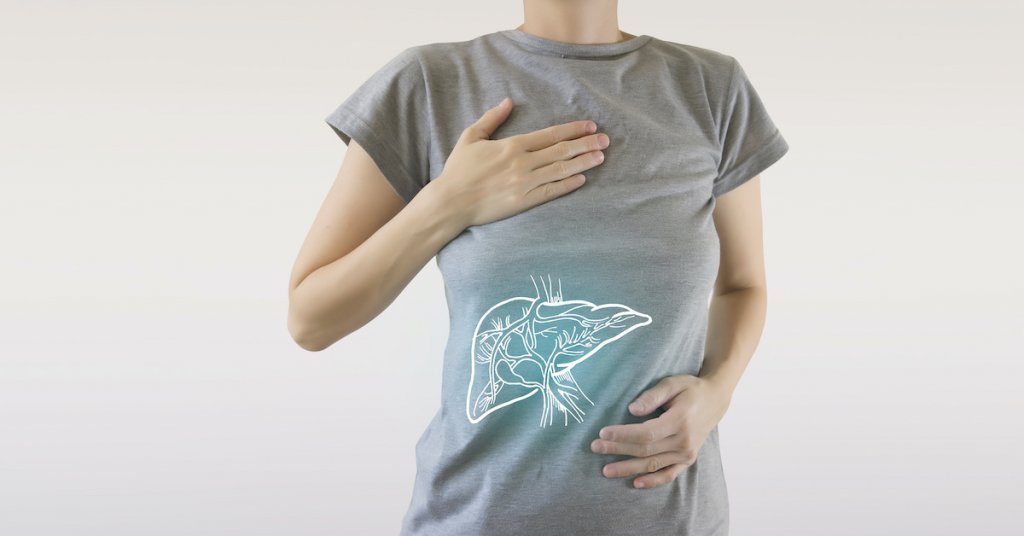What Does the Liver Do?

When people think of their digestive systems, they probably think of their stomach first, and then maybe their intestines. However, some people forget about an organ that’s a heavy hitter in the digestive system and is crucial to healthy body function: the liver. But what does the liver do? Well, there’s no short answer to that question. It helps with digestion (it is part of the digestive system, after all) and is an important part of keeping your body’s blood supply healthy and clean.
What Does the Liver Do?
Filtration
Your liver filters everything that you eat, drink, or otherwise consume. That includes foods, beverages, medicines, and toxins. After these things are digested by the stomach and intestine, they are absorbed into the blood, which gets filtered by the liver.
As it filters the things absorbed into the blood, it sends toxins out of the body through urine or stool. It also decides what nutrients the body needs so it can store them and then release them back into the blood.
Metabolism
The liver is a key player in all of your body’s metabolic processes. So if someone asks you, “what does the liver do?” you could tell them it helps turn food into energy. This includes breaking things down into forms that the body can use for energy as well as storing nutrients for later use. Then it releases those nutrients when you do need them later.
For instance, it removes sugar from the blood and stores it in the form of glycogen. It makes sure that your blood has the right amount of sugar in it and keeps that level constant to avoid dips and peaks. So it stores extra sugar when there is enough in the blood, and releases it when the level is not high enough.
The liver is also responsible for metabolizing fats, proteins, and carbohydrates. Cells in the liver break down the fats that you eat using the bile it produces. Bile in the liver is also an important part of helping the body absorb and store fats. The liver also converts the carbohydrates and protein into forms that can be used for energy or stored for later use.
Bile Production & Storage
The liver creates and stores bile Bile is a yellow, green, or brownish colored liquid produced by the liver. The liver contains several small bile ducts that collect the bile and pass it to the main bile duct. The main bile duct transports bile to the part of the small intestine called the duodenum. Bile is used to break down and absorb fats. Waste products and toxins are also removed with bile.
Blood Production & Recycling
During fetal development, the liver produces blood. During adulthood, the liver recycles blood. It breaks down old or damaged blood cells so that new cells can be formed. The liver plays another important part in keeping your blood healthy and functional because it uses vitamin K to produce the plasma proteins that allow the blood to clot.
Keeping Your Liver Healthy
As you can see, your liver performs a large number of essential body functions. It affects how your body gets energy and helps keep your blood clean and healthy (which affects the rest of the body). When your liver isn’t functioning properly, it can affect your other body systems and lead to serious illness. Therefore, it’s important to protect your liver health. According to the American Liver Foundation, the following 13 steps can help protect your liver:
- Stay at a healthy weight
- Eat a balanced diet of whole foods
- Get regular exercise
- Avoid toxins in cigarettes, insecticides, cleaning products, and aerosols
- Drink alcohol responsibly
- Avoid illicit drug use
- Avoid contaminated needles
- Seek medical attention if you’re exposed to blood
- Practice safe sex
- Don’t share personal hygiene items that may have traces of blood (razors, nail clippers, toothbrushes)
- Follow directions on all medications
- Wash your hands!
- Get vaccinated against hepatitis A and hepatitis B
If you are experiencing issues with your digestive system, including your liver, contact the team at Birmingham Gastroenterology Associates. We have decades of experience treating diseases and disorders in all parts of the digestive system. To make an appointment to discuss your symptoms and treatment options, call us at (205) 271-8000.

